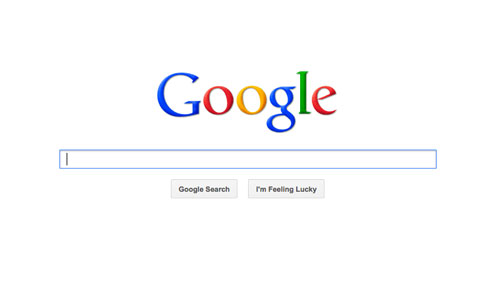Generation “G” for Google
Ana Gabriela Avendano
The Signal
Students nowadays rely on the Internet for research. Most are part of Generation Y, or Net Generation, one that has been shaped by the developments and trends of its time.
The rise of instant communication technologies such as smartphones and tablets was made possible through the use of the Internet, especially email, texting and IM, and new media used through websites like YouTube and Google.
Royce Walker, adjunct instructor in communication who teaches a Gathering Information course in which students learn research strategies, explains students depend on the Internet “entirely too much” for their research.
“The Internet has so much information available,” Walker said. “It does provide an ease of gathering information, but many times it is the only source used for an assignment.”
Students have become familiar with online research, especially when trying to meet an impending deadline and even more so when there is a convenient app for it. They are more likely to “Google” for information than browse through reports, magazines, encyclopedias and almanacs, all materials that are available to them through their school’s library.
Google is a search engine created by Larry Page and Sergey Brin, two computer science students, working from a Stanford University dorm room in 1998. Google quickly dominated search engine programs, a role previously led by Yahoo, Bing and AOL among others. In December of 1998, PC Magazine reported that Google “has an uncanny knack for returning extremely relevant results” and recognizes it as the search engine of choice in the Top 100 Websites for that year.
Google employee Tasha Bergson-Michelson, curriculum fellow, says that as one of the most-recognized Internet search engines for finding information on any topic, Google employees work very hard to ensure users will find what they want, when they want it, where they want it. Bergson-Michelson says the Google Web search makes it possible for users to find offline resources and more.
As this search engine has grown in popularity, the term “Google” has been transformed into a verb and used in phrases such as “Google it,” which refers to a search for information. The Oxford English Dictionary officially added “Google” as a verb in June 2006.
Google’s quick rise in popularity, especially among students, is part of the reason why it works very hard to make sure that they provide their searchers with the best information available. A strong scholarly research process involves checking many different kinds of sources, which is reflected in Google’s creation of Google Scholar, Google Books, Google News and other collections containing materials appropriate to scholarly tasks.
Google Scholar points users to scholarly articles and books that are in the databases available through your library or free online. Google Books locates books and allows users to check the “find in a library near you” link. Google News helps users target newspaper articles available online.
“Remembering your options when using Google helps you make informed choices about what sources to use to carry out exceptional scholarly research,” Bergson-Michelson said.
Chris Seiter, UHCL humanities student and Internet marketer/search engine optimizer, thinks students’ dependency on Google is not necessarily a bad thing. Search Engine Optimization (SEO) is the process of improving the visibility of a website in search engines. Many print resources today are being published online, not only because of high printing costs but in an effort of trying to reach a broader audience. The earlier and more frequently a site appears in the search results list, the more visitors it will receive.
“There is a big problem that a lot of people don’t even recognize: Google has a monopoly on Web traffic,” Seiter said. “The last time I checked, Google commands over 70 percent of the searches on the Web. When I optimize my sites, I do it for Google. Since Google is this big, they make the rules and everyone has to abide by them.”
Factors such as time and location are key elements students take into consideration when choosing between doing a search on the Internet rather than physically going to a library. Google Web Search makes it possible to explore questions of current public opinion, find statistics and more. Searching has become a simple task of just typing in keywords on a search engine.
UHCL’s Neumann Library offers many of their services online. Student service fees pay for access to databases that require a subscription. Students would not have access to these same databases using Google without having to pay to subscribe. Examples include past issues of newspapers and periodicals.
“Generations and technology are changing; we don’t know if 10-15 years from now, faculty will still require students to use or come to a library,” said Chloris Yue, reference and instruction librarian at Neumann Library.
Search engines, in general, have the ability to produce millions of results for a single query in a matter of seconds, but Walker points out that quantity does not always equal to quality.
“The concern I have is students take the first few listings and stop there,” Walker said. “They do not take the time to find the most credibile source; they lack the curiosity to locate the best sources and information.”
UHCL’s Neumann Library staff is trained to help students with any questions on a specific subject they might have. They have created a library instructions program, which works with faculty to bring their classes to the library and teach them what resources have been purchased by the university for the student body.
“Make use of the resources we have for you, we are here to help you; do not feel intimidated to ask for help,” Yue said. “We are here for you, face-to-face, online through our IM services or mobile access.”

